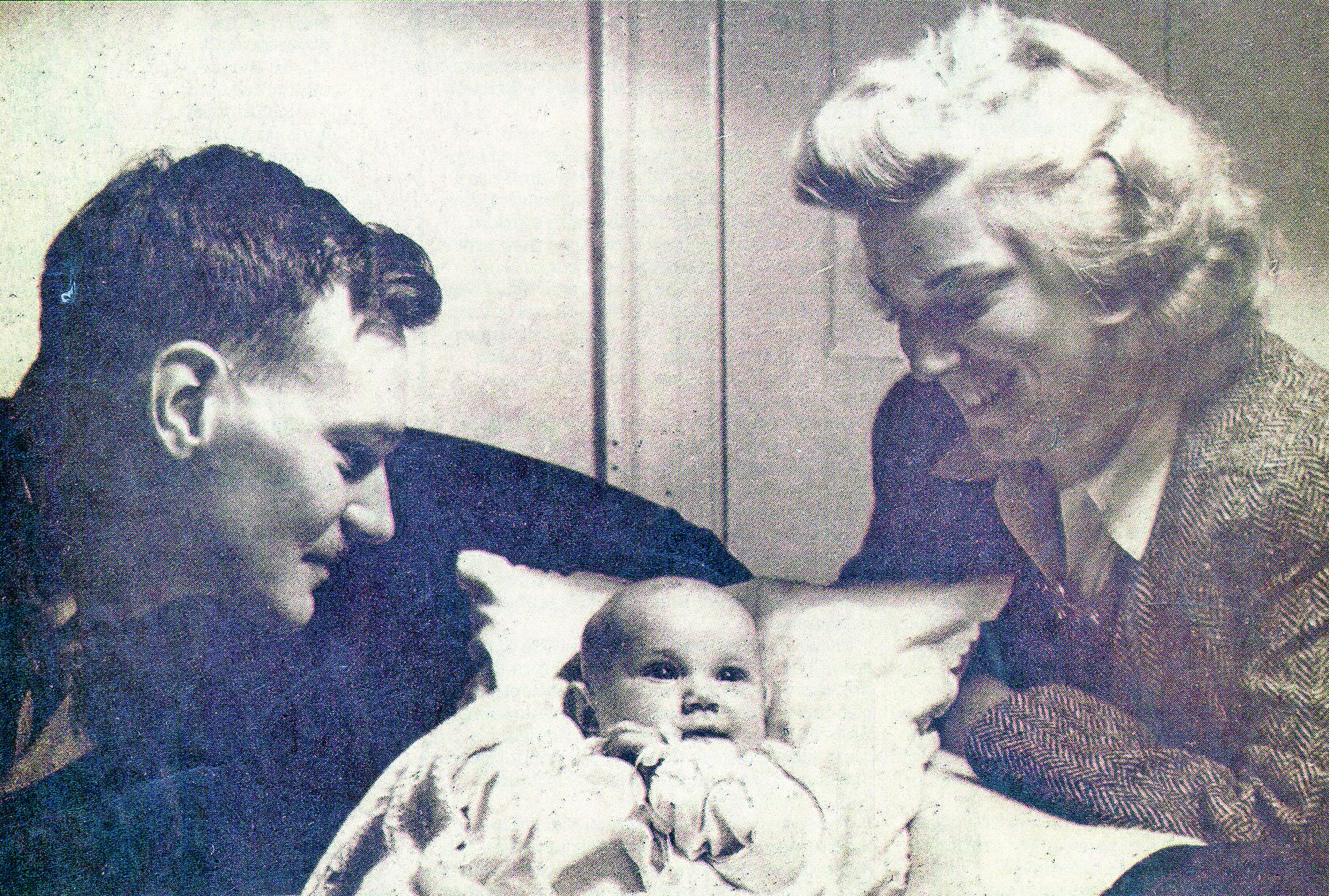Tom St. Amand and Tom Slater
Doodie Graham kept her husband’s wartime letters for the rest of her life. Soldiers overseas wrote thousands of letters home in WWII, but Bill’s letters affected others decades after he wrote them.
Doodie visited her husband’s grave in Holland shortly after the war ended. They had known each other for only a few years, but their love for each other was genuine and intense. Bill was her first love, her special love.
She re-married in 1958, worked as an assistant hospital administrator and passed away in the late 1990s. Only then did members of the family discover Bill Graham’s steamer trunk in her house.
It contained his wartime personal effects, and his letters to Doodie.
A family member contacted The Globe and Mail, which ran the letters and some photos in 2005 as part of the 60th anniversary of VE-Day.
In Sarnia, Bill’s brother, Jack, “pretty near fell over” when he saw a photograph of his brother on the front page of the Globe and Mail. The pictures evoked good and bad memories, but Jack was ultimately pleased and proud that others were remembering Bill.
Further investigation led reporters to Fredericton where Susan was living.
Her mother had never shown the letters to Susan, so she was pleasantly surprised to learn of them.
The only memories she had of her father were from various photos and the stories her mother told. Susan remembered that once, during a power outage, her mother and she sat on the floor and, in the glow of candlelight, Doodie regaled Susan with stories about her proud father.
Remembrance Day was always extremely difficult for Susan because her classmates’ fathers had all come home; but her childhood was mostly ordinary, filled with anecdotes about her father.
“It was just like he was part of our family,” she recalls.
She has never visited her father’s grave, but has asked her children to bury her ashes on his grave when she passes away “so that my father and I will be together.”
Lieutenant Bill Graham died a hero in 1945, and today, more than seven decades later, his wartime letters keep his memory alive.


